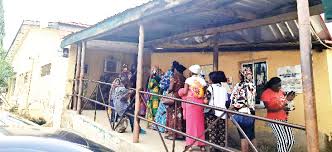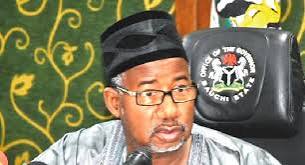Kaduna State has earmarked ₦400 million to combat malnutrition and improve child nutrition, complementing support from UNICEF, officials announced on Thursday.
Chairman of the Kaduna State Committee on Food and Nutrition, Bashir Muhammad, disclosed this during a breakfast meeting with key stakeholders focused on adopting the Child Nutrition Fund and implementing a six-month paid maternity leave policy. The meeting, supported by UNICEF and the Civil Society Scaling-Up Nutrition in Nigeria (CS-SUNN), aimed at strengthening nutrition strategies across the state.

Muhammad highlighted that government interventions have led to a significant reduction in stunting and wasting among children. He stressed that engaging stakeholders and legalizing key policies would ensure the sustainability of nutrition programs.
“We have engaged in advocacy visits to several ministries, departments, and agencies, which have yielded positive results. The State Assembly has even formed a dedicated committee on food and nutrition,” Muhammad said.
He also praised the implementation of six-month paid maternity leave in the state, noting its positive impact on breastfeeding practices and overall child nutrition.
“This policy is commendable, as it has significantly improved exclusive breastfeeding rates among nursing mothers,” he added.
Muhammad further emphasized the importance of establishing crèches in workplaces to support working mothers and improve child nutrition. He urged for the setup of more crèches, particularly in the State Secretariat, the Ministry of Health, the Ministry of Public Works, and Kaduna State University.
“We want to ensure that nursing mothers at workplaces have the necessary support, which will, in turn, help reduce malnutrition rates across the state,” he said.
He also expressed gratitude to Governor Uba Sani and state legislators for their commitment to the welfare of children and women in Kaduna.
CS-SUNN’s State Coordinator, Jessica Bartholomew, stated that the meeting aimed to mobilize additional resources for nutrition programs, highlighting the importance of increased funding for sustainable interventions.
“Governor Uba Sani’s ₦400 million child nutrition matching grant is one of the highest in Nigeria, demonstrating his strong dedication to improving nutrition,” she said.
Bartholomew revealed ongoing discussions to establish a nutrition department within the state’s primary healthcare system and the Planning and Budget Commission to ensure better coordination of nutrition-related initiatives.
UNICEF Nutrition Specialist, Chinwe Ezeife, reaffirmed the agency’s commitment to supporting Kaduna State’s nutrition programs.
“UNICEF is working closely with government agencies, civil society, and stakeholders to strengthen policies and scale up services that address malnutrition effectively,” she said.
Chairman of the Kaduna State House Committee on Nutrition and Food Security, Jessy Tanko, commended the progress made in improving nutrition and pledged continued legislative backing for nutrition-related policies.
“We recognize the critical role nutrition plays in the healthy development of women and children. The Assembly will ensure that nutrition policies are legalized and effectively implemented to reduce malnutrition in Kaduna State,” Tanko assured.







